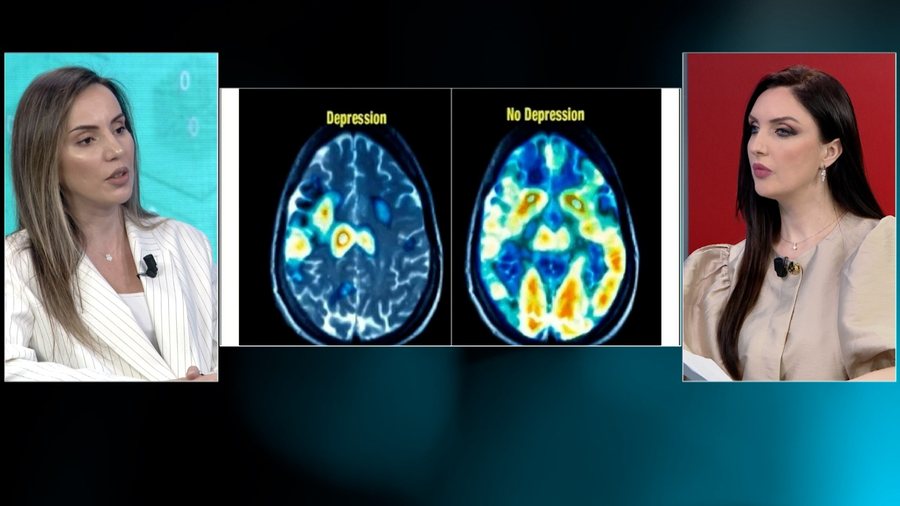
Mood disorders can be congenital. Recent WHO studies show that every individual will be affected by mood disorders at least once in their life. However, some individuals may have higher predispositions for these concerns. Symptoms are visible by occasionally having unexpected and uncontrolled behaviors. Invited to the studio of the show "Diagnozë" by Freskida Miloti, psychopharmacologist PhDC. Elma Miftari showed how these predispositions change throughout life.
" Here genetics intervenes and has a very strong emphasis, especially in recent years, for example there are innate predispositions for mood disorders. According to the WHO, it is predicted that each individual, at least once in their life, will be affected by a mental or emotional health disorder and we have no certainty that it will not happen just once, it will happen more than once. For example, we are born with certain predispositions to develop personality in the future, for example, we all notice individuals who are more open, more cheerful, have a concern, let's say, in their daily routine, they scream, start crying and that's it, while there are other individuals who are more withdrawn, keep it to themselves, are mainly more introverted compared to their society or circle, these are innate predispositions " - said the psychopharmacologist.
Often, some individuals experience different or aggravated emotional states during a certain phase of life. Most say they have depression, some say stress, and others think they have mood problems. Every change in emotional state cannot be self-defined.
" The most common and well-known mood disorders are bipolar disorders. When we are talking about depression, sadness dominates, meaning for a period of over six weeks to six months to a year if sadness is not treated, lack of motivation, lack of desire, social withdrawal, changes in appetite, increased appetite or reduced appetite, changes in sleep, often in cases of depression we have patients sleeping more than under normal conditions, meaning they exceed the ninety-nine depending on age. While regarding bipolar disorders we see that we have fluctuations from extreme to extreme, from sadness to supermania and to supermotivation, meaning an extraordinary motivation "- explained PhDC. Elma Miftari.
Due to bullying or stigmatization, many individuals suffering from depression or mood disorders do not seek help for treatment. In each case, medicine and psychopharmacology offer treatment through dedicated treatments.
" Usually in the clinical depression that we call it, and especially in bipolar disorders, pharmacological intervention is necessary, but we exclude bipolar disorders, because it is impossible to say without pharmacology. We initially orient this depression to psychotherapy, that is to say, we will not choose the easiest path, we will not immediately choose medication, there are many, many, many cases fortunately that have begun to say, the symptoms of depression, have been stable over time, and have been resolved with psychotherapy. If we see that up to a certain point psychotherapy is not providing the necessary effectiveness, because it always works, the possibility of including personalized neuropharmacological or psychopharmacological intervention is considered, " said the psychopharmacologist.
The show Diagnozë, by moderator and author Freskida Miloti, comes to A2 CNN viewers every Saturday at 18:15, with various and very important health topics. The show is rebroadcast every Sunday at 18:15. Stay informed by the most professional doctors who are part of our shows, for better health. (A2 Televizion)











